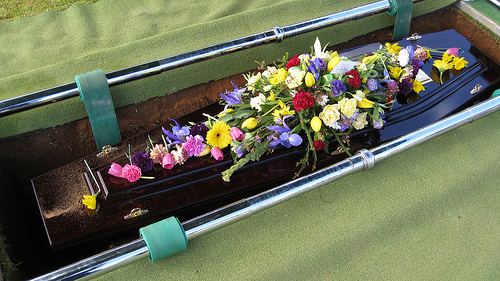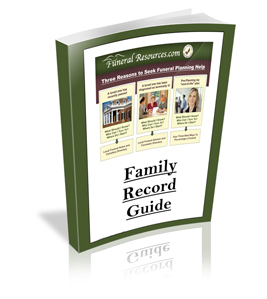Estate Planning
10 Most Common Questions Families Ask About Estate Planning, Last Wills, and Living Trusts
1. What is a Will?
A Last Will is signed writing in which a person (often referred to as the “testator”) directs what is to be done with his or her property after death. Each state has its own very specific laws as to what is necessary for a Last Will to be valid in that state.
2. Who Can Create a Will?
Any mentally competent person who is at least 18 years old may make a Last Will. However, later proof of any fraud, duress, or undue influence by another person or the testator may cause the Last Will to be invalid.
3. Who Should Have a Will…and Why?
Every mentally competent adult should have a Last Will. Here are a few of the reasons:
• You can direct how you want your property divided at your death.
• You can name the person you want to handle you estate (called the “executor” or “personal representative”).
• You can reduce the expenses of administering your estate.
• You can save taxes.
• You can nominate a guardian for your minor children.
• You may provide for a trust for the support and education of your children without the necessity of costly court proceedings.
4. Does a Will Need to Be Witnessed? Does a Will Need to Be Notarized?
Generally, most states require that the signing of a Last Will must be witnessed by two competent persons, who also must sign the Last Will in front of the testator. (An exception to the witness requirement is made if the testator writes out the entire Last Will in his or her own handwriting, and signs and dates it.)
Although the law does not require a Last Will to be notarized, it is a highly recommended practice, followed by most lawyers. If the testator’s and witnesses’ signatures have been notarized, the Last Will is presumed to be properly executed and is accepted by the court without testimony from the witness.
5. How Long is a Last Will Valid?
Your Last Will is valid until you revoke it generally either by physical destruction (tearing or burning it up, for example) or by signing a superseding Last Will or written revocation. However, if you get divorced after signing a Last Will, the law may consider the Last Will partially revoked. Also, if you are married, your spouse may have rights in your estate regardless of what is provided in your Last Will.
6. Can a Will Be Changed?
Your Last Will does not take effect until you die; therefore, it can be changed at any time during your life as long as you are mentally competent. Traditionally, Last Wills were changed by an amending instrument called a “codicil,” but with the development of modern word processing technology, it is usually better and just as easy to sign an entirely new Last Will when you wish to make changes.
7. What Happens If You Don’t Have a Will?
If you don’t have a Last Will, a state statute directs who receives you property, regardless of your wishes. For example, in my home state of Virginia, if you are married, your estate generally passes entirely to your surviving spouse; however, if you have children who are not also the children of your spouse, your children divided two-third of your estate, and your spouse takes the other one-third.
8. Is Joint Ownership a Good Substitute For a Last Will?
In most cases, joint ownership is not an acceptable substitute for a Last Will. Contrary to popular belief, joint ownership of assets between husband and wife often results in excessive estate takes. Joint ownership between parent and child may foster disputes between family members and cause unexpected and unnecessary gift taxes.
9. Is a Trust (Also referred to as a Revocable Living Trust) a Substitute for a Will?
A properly funded Revocable Living Trust can be a valuable and important part of the estate plan for many people, but it does not eliminate the need for a Last Will. If you have a Living Trust, you will still need a Last Will to dispose of those assets that have not or cannot be placed into the Living Trust.
As useful as they are, Living Trusts are not appropriate for everyone. Only your lawyer can tell you if you should consider one, and only you lawyer should prepare it.
10. Who Should Draft Your Last Will?
A person who drafts a Last Will must be familiar with the law in order to avoid the many pitfalls and to comply with the formalities necessary to assure the Last Will’s validity. Only a practicing lawyer is professionally qualified to give you advice regarding your Last Will, to prepare your Last Will, and to supervise it’s signing.
A Few More Practical Suggestions:
More than 70% of Americans Die Without Leaving Behind a Last Will. Planning your financial affairs, and coordinating this with your estate plan, is a very personal and individual matter. You should decide for yourself the general purpose you wish to accomplish, and then consult with a seasoned estate planning attorney, financial advisor, and CPA if you want to have a coordinated and comprehensive plan, which integrates and accomplishes all of your financial goals and objectives.
Four practical steps to save time and help assure a sound result:
1. Inventory you assets. List in reasonable detail all of your property, real and personal, life insurance policies, and retirement plans, with your best assessment of their values.
2. Inventory your liabilities. List all debts and obligations, including principal amounts, payees, and essential terms.
3. List your family members and any other persons whom you wish to participate in your estate. Decide who might be an appropriate executor, trustee, or guardian for your minor children.
4. Decide what you want to accomplish. Determine what your objectives are, and to whom you wish your assets distributed.
Getting Started is Easy:
It just takes five easy steps, where your only cost will be your time:
Step One: Spend some time with your existing financial advisor, or an experienced financial advisor in your local area, so you can review the basic details your “big picture financial plan” together
Step Two: Your financial advisor will review this information and help you assess confirm exactly what your estate planning needs and preferences are
Step Three: Once your financial advisor reviews your overall estate planning needs, they can help you understand exactly how Wills and Trusts work, as well as which one they feel fits your situation best
Step Four: After you are fully comfortable and confident with their recommendation, you can consult with a seasoned estate planning attorney who can help you properly draft these documents and details
Step Five: Arguably the most important step, and often overlooked, is making sure that your estate planning attorney, financial advisor, and CPA are all working together to ensure all of your estate plans and preferences are coordinated and working properly with your “big picture financial plan”.















